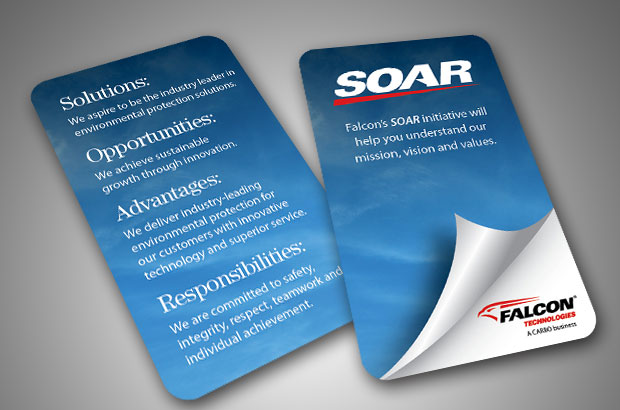Businesses tend to allocate a great deal of time and money to external communication – that is, communicating with customers or clients – but they need to remember that internal communication is every bit as vital. By leveraging workable internal employee communications programs, businesses can implement strategic methods for consistent information flow that will not only motivate employees and develop their efficiency and loyalty, but also facilitate communication throughout the company during times of crisis or change.
The Cost of Poor Internal Communications
Lack of attention to proper internal communications can be costly. Employees who aren’t engaged with your company are more likely to waste more of their time on non-job-related tasks. Lost productivity comes with a high price tag. It’s never a good idea for businesses to focus so strongly on their bottom line that they forget who drives their day-to-day efforts toward success: their employees.
Information Flow: Willy Nilly or Strategic
Information is going to flow regardless, whether at the proverbial Water Cooler or facilitated in a strategic, organized way. Willy-nilly information flow can often prove damaging, especially when rumors and false claims start to fly. When internal employee communications programs are effectively and strategically leveraged, information flow can facilitate positive developments for team members who work at all levels. They’ll have a much better grasp of the day-to-day challenges the company faces and how each team member can contribute to reaching the company’s goals. Strategic communications programs result in greater enthusiasm and better dissemination of facts, which helps employees to buy in and perform their best.
Here’s an example of an internal initiative we launched for an oil and gas company. The objective was to get all employees to better understand the company’s goals, and encourage them to personally participate in reaching those goals.

Feeling Like Team Members
It’s important that employees feel like team members. Internal employee communications programs can greatly help with that goal. Engaged employees know that their opinions are important to their supervisors, and they’re on board with the goals of the company and work as a team to further them. For employees to feel engaged, internal communications must give them a way to clearly communicate their needs and concerns to other people in the company, particularly their supervisors. Communications can also be used to convey recognition of employees for their achievements, which helps remind them that each person is important and fulfills a unique role for the organization.
A Multi-Channel Approach
For internal communication, many companies continue to rely on the old standby: the company newsletter. There’s nothing wrong with a company newsletter, but it can only disseminate information in one direction, that is, from the top down, and it doesn’t give employees at multiple levels in the hierarchy a means by which to communicate their concerns to supervisors or laterally to coworkers as needed. In the digital age, good employee communications programs must function on multiple channels. Use a company newsletter in conjunction with, for example, internal message boards or a blog, and don’t forget the power of face-to-face communication. The specifics of your employee communications program will depend on your specific company, its goals, and its structure, but it needs to strategically facilitate open, transparent communication throughout all levels of your company.
Consistency and Responsiveness During Crisis and Change
Effective internal employee communications is vital for its own sake, but developing workable communications methods during calmer times will also lay the foundation for consistency and responsiveness during times of crisis and change. That’s when it’s even more crucial that information be communicated promptly, clearly, and accurately throughout all channels.
For long term success, a company should make use of strategic internal employee communications programs to empower its employees, to help bring them on board with the company’s strategies and goals, and to help them feel that the business is both a worthy organization and a wonderful place to work. Maintaining open lines of communication is crucial to building a sense of support, solidarity, and trust within an organization, as well as the ability to feel an increased sense of pride in the company.

